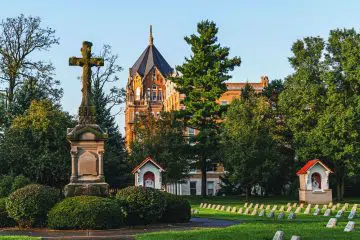Man who killed Sister Dorothy Stang released from prison

By Lise Alves Catholic News Service
SAO PAULO (CNS) — The man who confessed to killing a U.S.-born nun in 2005 in Brazil’s Amazon has been released from prison.
Rayfran das Neves Sales, who served a little less than eight years of a 27-year sentence for shooting Sister Dorothy Stang, a member of the Notre Dame de Namur Sisters, will carry out the rest of his sentence under house arrest.
Sales was one of the four other men accused of plotting and carrying out the assassination of Sister Dorothy. Two other accomplices are in jail serving sentences from 17 to 30 years, while the rancher said to be the mastermind of the plot remains free, waiting for a re-trial scheduled for September.
“We still grieve the loss of our Sister Dorothy and pray for justice, so we find the Brazilian judicial process quite confusing,” Sister Carol Lichtenberg, Provincial Leader for the Ohio Province of the Sisters of Notre Dame De Namur, told The Catholic Telegraph. “At the same time, we are aware that the poor farmers of Para continue to struggle, and we are concerned that the violence that took Sister Dorothy from us is still part of their lives.”
Sister Dorothy, a native of Dayton, Ohio, had lived in the Amazon region for nearly four decades and was a naturalized Brazilian. She worked closely with the Brazilian bishops’ Pastoral Land Commission in favor of land rights for the poor and for sustainable development in the region. The work she did angered many large landowners, and she had received death threats.
A lawyer for the Pastoral Land Commission, Jose Batista, told local media the decision showed that “crime pays” and said it would encourage criminal activities in the region.
Over the years several Catholic bishops in the region have received death threats from large landowners, usually due to their work with landless peasants and the indigenous population.
The Catholic Telegraph staff contributed to this report.













